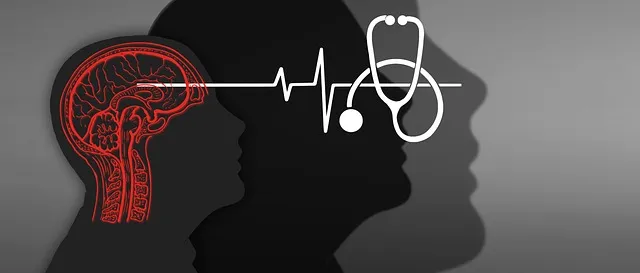The Westminster Kaiser Permanente mental health center prioritizes patient safety and well-being through comprehensive risk assessment strategies. Reviews highlight their effective use of tools like Social Skills Training, Mental Health Awareness initiatives, and self-care programs to identify and mitigate risks. By fostering self-awareness and resilience, the center empowers patients to manage vulnerabilities, preventing harmful behaviors. Continuous improvement, based on reviews and best practices, ensures patient-centric care focused on empathy, stress reduction, and resilience building, as emphasized in Westminster Kaiser Permanente mental health center reviews.
Risk assessment and harm minimization planning are essential components of safe practice, particularly within mental health settings. This comprehensive guide explores these critical processes, offering insights into understanding risk assessment as a foundational step, identifying and evaluating risks in Westminster Kaiser Permanente mental health centers, and developing effective strategies for harm minimization. Through real-world examples, we demonstrate successful implementation and review processes that drive continuous improvement at this leading healthcare provider.
- Understanding Risk Assessment: A Foundation for Safe Practice
- Identifying and Evaluating Risks in Mental Health Settings
- Developing Effective Harm Minimization Strategies
- Implementation and Review: Ensuring Continuous Improvement at Westminster Kaiser Permanente
Understanding Risk Assessment: A Foundation for Safe Practice

Understanding Risk assessment forms a fundamental pillar in ensuring safe practices at mental health institutions like Westminster Kaiser Permanente, as reviewed by numerous patrons. It involves a systematic process of identifying, analyzing, and evaluating potential risks to patients, staff, and the broader community associated with providing mental health services. This proactive approach enables professionals to implement harm minimization strategies, tailoring interventions to mitigate identified dangers.
By integrating concepts from the Mental Health Policy Analysis and Advocacy and leveraging tools like risk assessment for mental health professionals, institutions can foster a culture of safety. For instance, Social Skills Training has proven effective in enhancing patient outcomes by equipping them with coping mechanisms and improving staff-patient interactions. This comprehensive approach ensures that care is not only effective but also ethically sound and legally compliant.
Identifying and Evaluating Risks in Mental Health Settings

Identifying and evaluating risks in mental health settings is a critical component of risk assessment and harm minimization planning. At Westminster Kaiser Permanente mental health center reviews, professionals recognize that understanding potential hazards is key to providing safe, effective care. This involves meticulously scrutinizing various factors such as patient history, current symptoms, environmental influences, and known or anticipated triggers. By employing comprehensive risk assessment tools and conducting thorough evaluations, healthcare providers can accurately identify specific risks associated with individual patients.
Mental Health Awareness plays a pivotal role in this process, enabling staff to recognize early warning signs of deteriorating mental health. Additionally, initiatives like Self-Esteem Improvement and Community Outreach Program Implementation contribute to risk minimization by fostering supportive environments and promoting proactive engagement among patients and their support networks. These efforts collectively enhance the ability to anticipate, mitigate, and respond effectively to risks, ensuring patient safety and well-being within the mental health center setting.
Developing Effective Harm Minimization Strategies

Developing effective harm minimization strategies involves a multi-faceted approach that goes beyond mere crisis intervention. At the core, fostering self-awareness exercises empowers individuals to better understand their emotional triggers and vulnerabilities. By integrating these practices into daily routines, users at mental health centers like Westminster Kaiser Permanente can proactively manage stress and potential harmful behaviors.
Complementing this is the cultivation of a robust self-care routine for better mental health. This includes setting boundaries, engaging in regular physical activity, maintaining a balanced diet, and prioritizing quality sleep. Building resilience through these practices not only enhances overall well-being but also equips individuals with the tools to navigate challenging situations without resorting to harmful coping mechanisms.
Implementation and Review: Ensuring Continuous Improvement at Westminster Kaiser Permanente

At Westminster Kaiser Permanente mental health center, continuous improvement is not just a motto—it’s a cornerstone of their approach to patient care. Implementation and review processes are meticulously designed to ensure that services remain at the forefront of best practices in mental healthcare. Regular reviews involve assessing the effectiveness of programs, therapies, and support systems, enabling them to adapt swiftly to evolving needs and research findings. This dynamic approach leverages Empathy Building Strategies and Stress Reduction Methods as central components of their harm minimization planning.
Through these reviews, Westminster Kaiser Permanente identifies areas where Resilience Building interventions can be enhanced or introduced, fostering a more supportive environment for patients’ mental well-being. Such proactive measures not only reflect the center’s commitment to patient-centric care but also underscore its dedication to staying ahead in the field of mental healthcare through continuous learning and innovation.
Risk assessment and harm minimization planning are essential components of safe practice in any setting, but particularly in mental health centers like Westminster Kaiser Permanente. By understanding risk assessment as a foundational practice, identifying and evaluating risks specific to mental health environments, and developing effective strategies for harm minimization, institutions such as Westminster Kaiser Permanente can ensure continuous improvement and enhance patient safety. Regular implementation and review processes enable these mental health centers to navigate complexities, learn from experiences, and foster an environment that promotes recovery and well-being for all individuals served.






